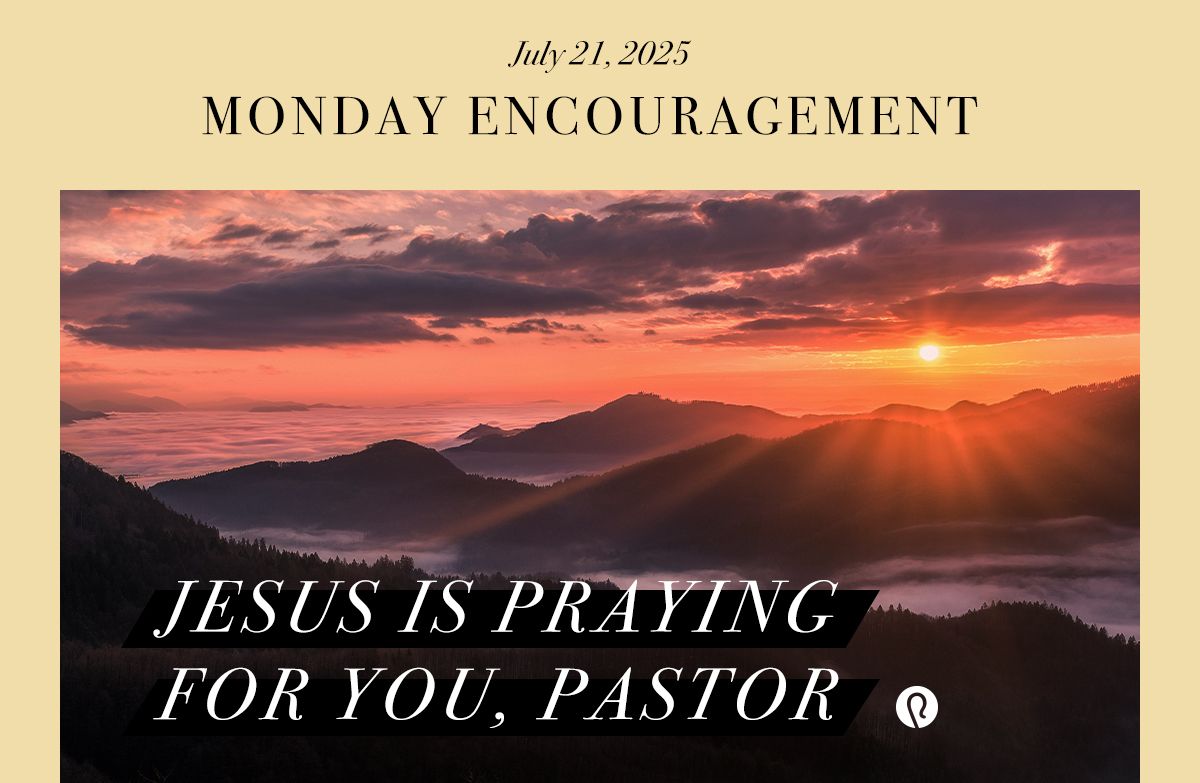
How to Adapt to Lead a Growing Church
Pastor, before your church can grow to the next level, you need to understand the stage you're in now. Different stages of church growth require different leadership skills. You won’t lead a church of 400 the same way you lead a church of 40.There’s nothing wrong with that. In fact, it’s by God’s design. But it does mean you need to be willing to grow and change if you want your church to do the same.Here’s a simple framework I’ve used for decades. It identifies three types of churches, each with unique structures and leadership needs:1. Single-Cell Churches (under 200 people)In a single-cell church, one group of people make up the entire church. There are only a few ministry groups, and relationships are close. Everyone knows everyone else. This stage often feels like a family.At this level, the pastor operates like an owner/operator. You do everything: printing bulletins, unlocking the church, sweeping floors, and preaching. You're the entrepreneur keeping everything going.Many pastors love this stage because it feels personal and manageable. But if your church is going to grow beyond this, something has to change.2. Multiple-Cell Churches (200-300 people)In this stage, the church includes multiple groups: small groups, Sunday school classes, men's and women's ministries, and more. It’s no longer possible for the pastor to do everything.The pastor’s role must shift to manager/supervisor. You begin building a team. You train and empower others. Instead of doing all the ministry yourself, your role is to lead others who do ministry.This is where many churches get stuck. The transition from operator to manager is difficult. You must learn to delegate and trust others with key responsibilities.Your worship services also need to improve. In a small church, people overlook imperfections because it's like family. But once your church hits 300, people are attending for different reasons. They may not have personal connections yet, so they’re evaluating the church based on the worship experience, teaching, and excellence.3. Multiple-Congregation Churches (400+ people)Larger churches function as a congregation of congregations. Ministries—like children’s, men’s, and women’s ministries—become self-contained congregations within the church, each with their own leaders and programs.At this level, the pastor must become an executive leader. This doesn’t mean controlling everything. In fact, you need to let go of many day-to-day decisions. The executive pastor and leadership team handle the details.Your primary roles become:Setting the visionPreaching and teachingMaking high-level decisionsAs the church grows, the pulpit becomes the most powerful tool to set direction. People follow the vision you cast from the stage.You Can’t Be Great at Every Stage—and That’s OkayIt’s rare to find a pastor who is naturally skilled at all three of these stages. Most leaders thrive in one. That’s why it’s so important to build a team that complements your gifts.Personally, I struggled in the manager stage. I was great doing it all myself or stepping back to lead at a high level—but not at managing. Saddleback got stuck for a time until I learned to surround myself with people who were strong supervisors and administrators.Wherever you are now, I want to encourage you: Stick to the vision God gave you. You might be hauling gear in and out of your garage every Sunday. I’ve been there too. Don’t give up. Trust God to grow you as he grows your church.How to Prepare for the Next StageIn a single-cell church, growth comes by adding new cells. Start more groups, more classes, even more services. Multiply your church’s connection points.In a multiple-cell church, improve the worship experience. Make it excellent and relevant. Recognize that people are no longer coming primarily because of friendships—they’re coming to see if your church is worth their time and trust.In a multiple-congregation church, focus on staff management. Delegate well. Develop leaders. Protect your time so you can lead with clarity and preach with power.As your church grows, your leadership must grow too.You don’t need to be everything. You just need to be willing to change. Let God shape you into the kind of leader your church needs at each stage.God has placed you in your church for a reason. Keep growing, and keep leading with vision and humility.
How to Adapt to Lead a Growing Church

Jesus Is Praying for You, Pastor
“Who then is the one who condemns? No one. Christ Jesus who died—more than that, who was raised to life—is at the right hand of God and is also interceding for us.” Romans 8:34 (NIV)Pastor, before you preach your first sermon this week, counsel that couple, or walk into yet another meeting, take a breath and remember this: Jesus is already praying for you.He knows everything you’re about to face. He’s not surprised by the weight of ministry. He knows the email waiting in your inbox, the hospital visit coming on Wednesday, the spiritual attack you can’t quite name yet—and he’s already interceding.That’s what it means to be omniscient. He knows the past, present, and future—all at once. And in his perfect knowledge, he’s lifting you up in prayer.The night before the cross, Jesus told Peter, “I have prayed that you will not lose your faith! Help your brothers be stronger when you come back to me” (Luke 22:32 NCV). Jesus knew Peter was about to blow it. He knew the shame and self-doubt that would follow. But he prayed for Peter in advance—and he prayed with a view toward restoration and future ministry.In the same way, Jesus has already prayed you through what’s ahead.You may feel like you're running on fumes today. Maybe your heart is heavy from burdens your people can’t see. But Jesus sees. Jesus knows. And Jesus is praying.The Son of God is at the right hand of the Father, interceding for you (Romans 8:34). That truth alone can carry you through anything you’ll face this week.You’re not leading alone. You’re not preaching alone. You’re not suffering alone.Jesus is with you—and he’s praying for you.
Jesus Is Praying for You, Pastor

The Lies Your People Believe—and How to Counter Them
Pastor, every week when you stand before your congregation, you’re not just preaching to believers—you’re preaching into a world filled with competing worldviews. People bring those views into your church every Sunday. They shape how your members see relationships, success, money, purpose, and even God.Worldview matters. It’s not just academic or philosophical. People live their lives based on their worldview—whether they realize it or not. If you want to see transformation in your people, you must help them change how they view the world. Romans 12:2 says, "Do not conform to the pattern of this world, but be transformed by the renewing of your mind" (NIV).Here are six of the most common worldviews that are shaping the people in your pews—and how God’s Word responds to each one.1. The one with the most toys wins.This is materialism. It’s the belief that life is about acquiring more. More stuff. More money. More success.But Jesus said, "Life does not consist in an abundance of possessions" (Luke 12:15 NIV). Real life isn’t about what you own—it’s about who owns you. The greatest things in life aren’t things.2. I’ve got to think of myself first.This is the worldview of individualism. It’s the mindset behind many cultural slogans: “Have it your way.” “Obey your thirst.” “You deserve it.”It’s a self-centered life that destroys marriages, divides churches, and corrodes communities.Jesus taught the opposite: "If you try to hang on to your life, you will lose it. But if you give up your life for my sake, you will save it" (Matthew 16:25 NLT).True life comes from giving yourself away—to God and to others.3. Do what feels good.This is hedonism—the belief that the goal of life is to feel good, be comfortable, and have fun.But Scripture is clear. The Message paraphrase says: "Are you addicted to thrills? What an empty life! The pursuit of pleasure is never satisfied" (Proverbs 21:17).Chasing pleasure doesn’t satisfy. It leaves people empty. God created us for more than comfort—he created us for a calling.4. Whatever works for you.This is pragmatism. In today’s world, the only “wrong” seems to be telling someone else they’re wrong. Truth becomes subjective. People say, “If it works for you, that’s fine.”But the Bible warns us: "There is a way that appears to be right, but in the end it leads to death" (Proverbs 14:12 NIV).Truth isn’t whatever works. It’s what God says is right.5. God doesn’t exist.This is naturalism, or atheism. It claims that life is an accident, that there is no Creator and no ultimate purpose.But Paul writes: "Through everything God made, they can clearly see his invisible qualities—his eternal power and divine nature. So they have no excuse for not knowing God" (Romans 1:20 NLT).Creation points to a Creator. If there’s no God, life has no meaning. But God made you—and everyone you preach to—for a purpose.6. You are your own god.This is humanism—a worldview that says we are in control of our own destiny. It’s behind the belief that we’re the masters of our fate and the captains of our souls.But Romans 1:25 says, "They exchanged the truth about God for a lie, and worshiped and served created things rather than the Creator" (NIV).Every human being is wired to worship. If we don’t worship God, we’ll worship something else—even ourselves.A Biblical WorldviewAll of these worldviews have consequences. And most people don’t even realize how deeply influenced they are by them.There’s only one worldview that leads to the life God has planned for you: a biblical worldview. The biblical worldview says: God created us for his purposes. We are not our own. We exist for his glory.Pastor, if you want to change people’s lives, help them change their worldview first. When their minds are renewed, their hearts will follow.
The Lies Your People Believe—and How to Counter Them

Take a Day Off: Why Pastors Need a Weekly Sabbath
Pastor, when was the last time you took a full day off? Not a conference. Not a ministry retreat. Not a family vacation that turned into an emergency counseling session. A real day off.You spend your week meeting the needs of others. It’s easy to put your own needs—and your family’s needs—last. But God commands something different. He calls you to rest. There are lots of reasons you need a weekly Sabbath. Here are just a few:1. God Commands ItGod has more to say about taking a day off than about murder or adultery. The fourth commandment is the longest of the Ten Commandments, and it's the only one many pastors routinely ignore.“Remember to observe the Sabbath day by keeping it holy. You have six days each week for your ordinary work, but the seventh day is a Sabbath day of rest dedicated to the LORD your God. On that day no one in your household may do any work. This includes you, your sons and daughters, your male and female servants, your livestock, and any foreigners living among you” (Exodus 20:8–10 NLT).God was serious about this. And he backed it up with his own example: "By the seventh day God had finished the work he had been doing; so on the seventh day he rested from all his work" (Genesis 2:2 NIV). Was God tired? Of course not. He doesn’t get tired. But he was modeling a principle.2. You Were Made for ItJesus said, "The Sabbath was made to benefit man, and not man to benefit the Sabbath" (Mark 2:27 TLB). You weren’t made to run nonstop. Your body, mind, and soul need regular rest and replenishment.If you don’t schedule a Sabbath, your stress and exhaustion will schedule one for you.Every seven days, you need to recharge physically, emotionally, and spiritually. The Sabbath is God’s gift to help you avoid burnout in a stress-filled calling.3. It Doesn’t Have to Be SundayYou might be thinking, "Rick, I’m a pastor. Sundays are not exactly restful!"That’s okay. Your Sabbath doesn’t have to be Sunday. But it does need to be one day every week—a day that is different from the others. Set it apart. Rest, refocus, and reconnect with God and your family."It is useless for you to work so hard from early morning until late at night . . . for God gives rest to his loved ones" (Psalm 127:2 NLT).4. You’re Not That ImportantWhen you refuse to take a Sabbath, you’re sending a message: "I’m too important to rest. Everything depends on me."Pastor, you need to resign as general manager of the universe. It will keep spinning without you.The truth is, workaholism in ministry is often driven by pride, guilt, or insecurity. You think ministry won’t happen without you. But it will—and it might even be healthier.5. Your Family Needs ItYour family needs more than your sermons. They need your time. They need your laughter. They need your attention when you’re not distracted by the next thing on your to-do list.For years, Monday was my day off. Monday night was family night. We didn’t do anything elaborate—we just enjoyed each other. That weekly rhythm shaped our family.You don’t just teach your kids values; you model them. And one of the most important lessons you can model is this: God designed us to rest.Take the First Step This WeekYou don’t need a sabbatical or a two-week vacation. You need a Sabbath. One day. Every week.Start this week. Protect that day. Don’t let anything steal it. It may be the most important ministry decision you make.
Take a Day Off: Why Pastors Need a Weekly Sabbath








